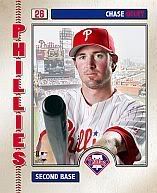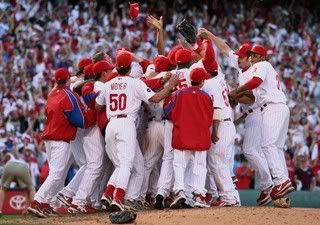Post by WVUfanPHILLY on Aug 15, 2007 14:49:23 GMT -5
The Associated Press
ANNAPOLIS, Md. -- By playing slot machines in Delaware and West Virginia, Marylanders contributed about $150 million in tax revenue to the two states last year, about 10 percent of the $1.5 billion deficit Maryland is facing, according to a state report made public Tuesday.
The report was compiled by Thomas Perez, Maryland's Secretary of the Department of Labor, Licensing and Regulation, for Gov. Martin O'Malley. The department headed by Perez regulates the horse racing industry.
"It's important to acknowledge that in a very real sense, the slots horse is already out of the barn in Maryland,'' Perez states in the report's conclusion. "Tens of thousands of Marylanders are voting with their feet, and traveling to West Virginia and Delaware to play slots.''
The report also concluded that Maryland either needs to legalize slot machine gambling or use state money to help save an important industry "in serious economic distress.''
By failing to legalize slot machines, Maryland "already has left hundreds of millions of dollars in potential general fund revenue on the table, and the tables are located in West Virginia and Delaware.''
"If we fail to identify a stable funding source, the industry will wither away in my judgment, and the economic consequences will be significant,'' Perez wrote.
The report cites a University of Maryland study in 1999 that estimated the total economic impact of the racing industry in the state to be near $600 million and involve about 9,000 full-time jobs.
To write the report, Perez toured slots venues in neighboring states for a month. He talked to officials at race tracks and scanned parking lots for Maryland license plates. Perez also toured venues in Pennsylvania and wrote that it's not clear how much more money from Maryland gamblers has gone to that state in 2007.
"The conclusion is simple: Slots have simultaneously benefited the racing industries in these states and jeopardized the long-term viability of Maryland's horse racing and horse breeding industry,'' Perez wrote.
The report also points out that the horse racing industry protects an important part of the state's open space. Farms relating to horses account for 685,000 acres of land with a value of about $4 billion. The industry "provides an important buffer against sprawl development,'' Perez wrote.
But Aaron Meisner, chairman of StopSlots Maryland, described the report as incomplete, citing numbers that are "completely mysterious'' and failing to address tough issues like where the machines would be placed.
"The bottom line is, I'm not seeing anything beyond more guess work,'' Meisner said. "I'm not seeing the hard issues being addressed. Sadly, I just don't see this changing the nature of the debate.''
Slot machine gambling has produced contentious debate in the General Assembly for years, stalling every time.
O'Malley has been a supporter of legalizing slot machines at race tracks since his days as mayor of Baltimore, home of Pimlico Race Course and the Preakness Stakes. The race, the second leg of the Triple Crown, provides a big economic boost to Baltimore every year.
"I think the report tells us what we already know, which is that the racing industry is in serious economic distress, and if we want horse racing in Maryland to survive we need to come together to address the issue,'' said O'Malley spokesman Rick Abbruzzese.
Senate President Thomas V. Mike Miller has been an ardent supporter of slots. Last session, he introduced a bill that would have paved the way for more than 15,000 slot machines at seven locations around Maryland, including four race tracks.
Miller said slots should have been legalized in Maryland five years ago, and that the report underscored what's been known for years. Like it or not, he said, gambling has been expanding, and Maryland shouldn't lose out on needed tax revenue.
"The state should manage it,'' Miller said Tuesday. "The state should make certain that whatever benefits are derived from this trend that they are put to good public use.''
House Speaker Michael Busch, while not totally opposed to possibly legalizing slot machines, has been wary about how many should be allowed, where they should be placed and how the licensing agreements are reached with companies that stand to benefit.
"I don't think anyone wants to see any unjust enrichment,'' Busch said late Tuesday afternoon, adding: "You've got to go through a thoughtful process with this.''
© Copyright 1996-2007 The Charleston Gazette
ANNAPOLIS, Md. -- By playing slot machines in Delaware and West Virginia, Marylanders contributed about $150 million in tax revenue to the two states last year, about 10 percent of the $1.5 billion deficit Maryland is facing, according to a state report made public Tuesday.
The report was compiled by Thomas Perez, Maryland's Secretary of the Department of Labor, Licensing and Regulation, for Gov. Martin O'Malley. The department headed by Perez regulates the horse racing industry.
"It's important to acknowledge that in a very real sense, the slots horse is already out of the barn in Maryland,'' Perez states in the report's conclusion. "Tens of thousands of Marylanders are voting with their feet, and traveling to West Virginia and Delaware to play slots.''
The report also concluded that Maryland either needs to legalize slot machine gambling or use state money to help save an important industry "in serious economic distress.''
By failing to legalize slot machines, Maryland "already has left hundreds of millions of dollars in potential general fund revenue on the table, and the tables are located in West Virginia and Delaware.''
"If we fail to identify a stable funding source, the industry will wither away in my judgment, and the economic consequences will be significant,'' Perez wrote.
The report cites a University of Maryland study in 1999 that estimated the total economic impact of the racing industry in the state to be near $600 million and involve about 9,000 full-time jobs.
To write the report, Perez toured slots venues in neighboring states for a month. He talked to officials at race tracks and scanned parking lots for Maryland license plates. Perez also toured venues in Pennsylvania and wrote that it's not clear how much more money from Maryland gamblers has gone to that state in 2007.
"The conclusion is simple: Slots have simultaneously benefited the racing industries in these states and jeopardized the long-term viability of Maryland's horse racing and horse breeding industry,'' Perez wrote.
The report also points out that the horse racing industry protects an important part of the state's open space. Farms relating to horses account for 685,000 acres of land with a value of about $4 billion. The industry "provides an important buffer against sprawl development,'' Perez wrote.
But Aaron Meisner, chairman of StopSlots Maryland, described the report as incomplete, citing numbers that are "completely mysterious'' and failing to address tough issues like where the machines would be placed.
"The bottom line is, I'm not seeing anything beyond more guess work,'' Meisner said. "I'm not seeing the hard issues being addressed. Sadly, I just don't see this changing the nature of the debate.''
Slot machine gambling has produced contentious debate in the General Assembly for years, stalling every time.
O'Malley has been a supporter of legalizing slot machines at race tracks since his days as mayor of Baltimore, home of Pimlico Race Course and the Preakness Stakes. The race, the second leg of the Triple Crown, provides a big economic boost to Baltimore every year.
"I think the report tells us what we already know, which is that the racing industry is in serious economic distress, and if we want horse racing in Maryland to survive we need to come together to address the issue,'' said O'Malley spokesman Rick Abbruzzese.
Senate President Thomas V. Mike Miller has been an ardent supporter of slots. Last session, he introduced a bill that would have paved the way for more than 15,000 slot machines at seven locations around Maryland, including four race tracks.
Miller said slots should have been legalized in Maryland five years ago, and that the report underscored what's been known for years. Like it or not, he said, gambling has been expanding, and Maryland shouldn't lose out on needed tax revenue.
"The state should manage it,'' Miller said Tuesday. "The state should make certain that whatever benefits are derived from this trend that they are put to good public use.''
House Speaker Michael Busch, while not totally opposed to possibly legalizing slot machines, has been wary about how many should be allowed, where they should be placed and how the licensing agreements are reached with companies that stand to benefit.
"I don't think anyone wants to see any unjust enrichment,'' Busch said late Tuesday afternoon, adding: "You've got to go through a thoughtful process with this.''
© Copyright 1996-2007 The Charleston Gazette




